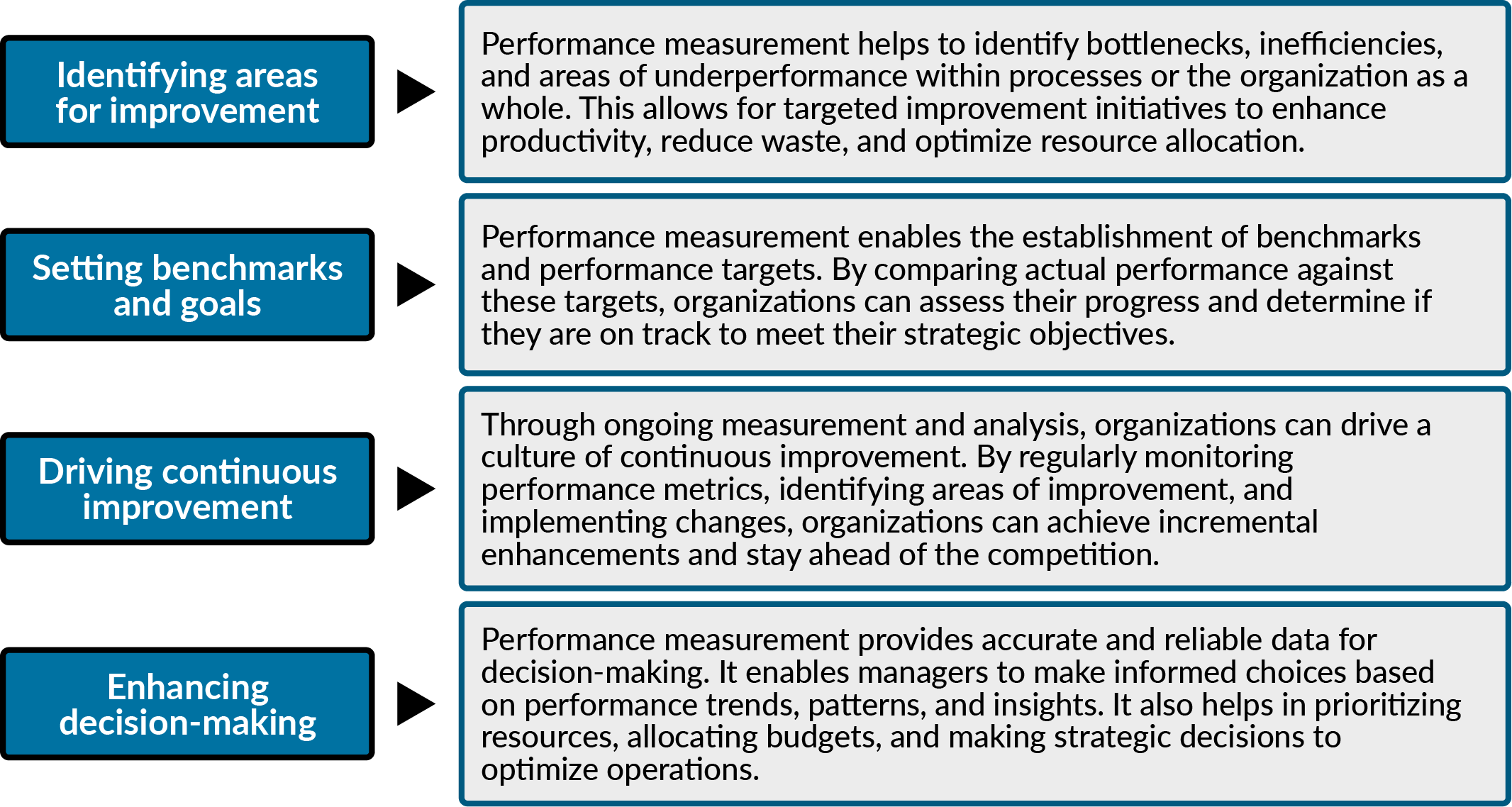Performance Measurement and Improvement
Performance Measurement and Improvement refers to the process of assessing, monitoring, and enhancing the performance of an organization or specific processes within it. It involves measuring key performance indicators (KPIs) and analyzing data to gain insights into the effectiveness and efficiency of operations. The primary goal is to identify areas for improvement and implement targeted actions to enhance overall performance.
Performance measurement provides organizations with objective information about their operations, enabling them to evaluate their performance against set goals and benchmarks. It allows for the identification of strengths and weaknesses, enabling informed decision-making and strategic planning. By measuring performance, organizations can track progress, identify trends, and make data-driven decisions to optimize operations.
The benefits of performance measurement and improvement in operations management are numerous. Some of the key advantages include:

Overall, performance measurement and improvement play a vital role in operation management by providing a systematic approach to evaluate, enhance, and optimize performance. It enables organizations to track progress, align operations with strategic objectives, and drive continuous improvement for sustained success.
These three concepts provide a foundational understanding of operations management and its significance in driving organizational success. They cover aspects related to process efficiency, waste reduction, and continuous improvement, which are fundamental principles in optimizing operational performance.